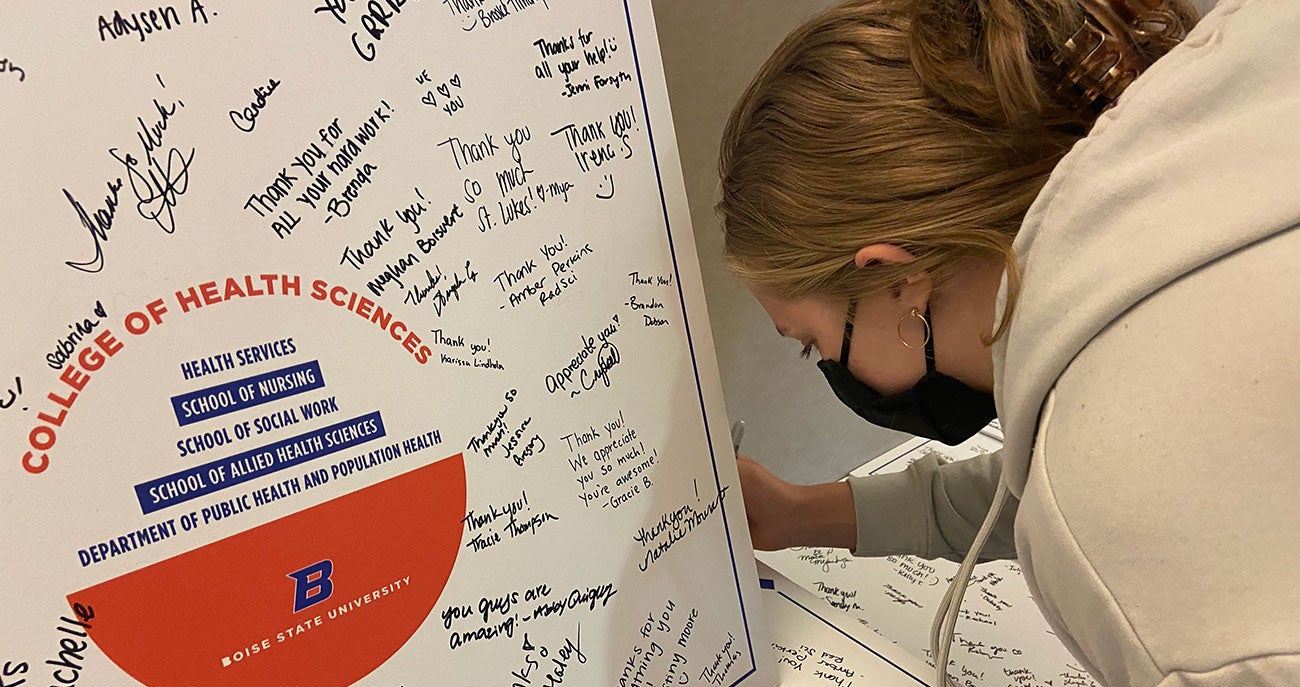
Health care is a demanding field. Long hours, constant changes … Throw a pandemic in, and is there any reason to think that physicians, nurses and other medical professionals are in an enviable spot?
All of which Boise State’s College of Health Sciences students and faculty members understand better than most, and which is why the college has made a special effort to support professional colleagues throughout this historic time.
This fall, as the delta variant of the COVID-19 virus descended so heavily on Idaho that the state was forced to declare crisis standards of care conditions for its hospitals and care settings, COHS students signed and delivered giant thank-you cards.
The teams caring for COVID-19 and other patients with the U.S. Department of Veterans Affairs, St. Luke’s, Saint Alphonsus, Primary Health and Saltzer Health received oversized blue and orange cards delivering “A Big Bronco Thank You,” signed by dozens of students and team members. Many took the time to add short inspirational notes as well.
The thoughtful shoutout was organized by Assistant Dean Lutana Haan and Senior Director of Development Heather Jauregui. Both have extensive backgrounds and close colleagues and family members in health care locally, and were concerned about the impacts the prolonged health crisis was having on critically needed professionals in the community.
“Their dedication to caring for patients during the devastating fall surge, and their determination to not step back from educating the next generation of health professionals, has been incredibly humbling to witness,” Haan said.
Haan, Jauregui and Director of Development Megan Orthmeyer, joined by a handful of students, had the opportunity to deliver the cards around Thanksgiving.
“We are so grateful for their expertise and mentoring of Boise State students,” Jauregui said.
The college has extremely close and productive partnerships and relationships with the healthcare institutions and professionals across the region served by Boise State. Dozens of graduates go on to work in the local clinics, hospitals, offices and healthcare systems, employees often also work for the organizations and the healthcare entities support college programming and needs for equipment and expertise.
“So many of these professionals are graduates of our programs, and they have all done an incredible job of seeing our community through this public health tragedy,” College of Health Sciences Dean Dr. Tim Dunnagan said.
“It’s important for them to know we’re thinking of them, concerned about them and doing everything we can from this vantage point to support them.”